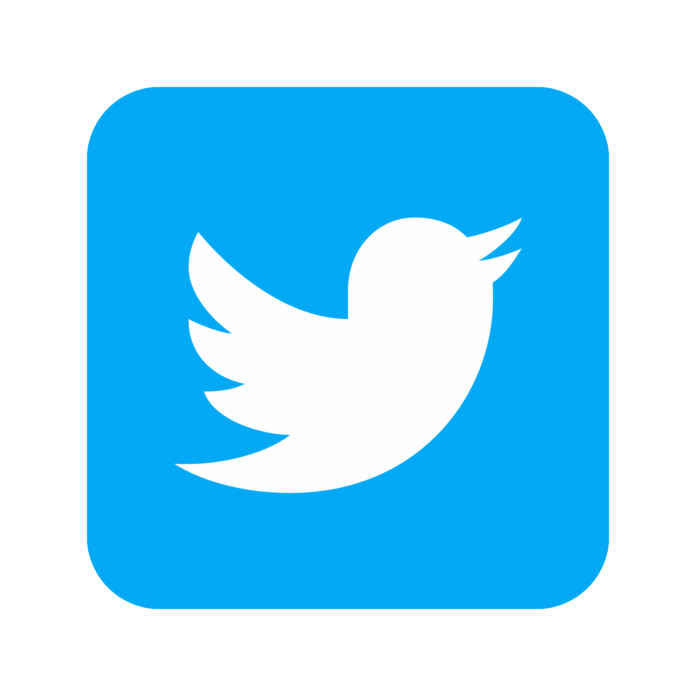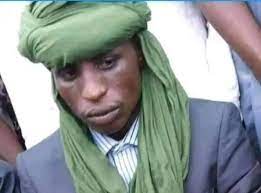By Jeph Ajobaju, Chief Copy Editor
From mega church pastors to legal luminaries and the man on the street, Nigerians in their millions keep on tweeting five days after Muhammadu Buhari banned the platform for deleting his tweet on the Civil War with a Fulani supremacist undertone.
Many, particularly in the South, dismiss his ban as an unreasonable act that latches back to Buhari’s dictatorship days as military Head of State between 1983 and 1985 when he enacted Decree 2 and Decree 4 by fiat to muzzle freedom of speech.
Decree Number 2 of 1984 empowered security personnel to detain, without charges, individuals deemed to be a security risk to the state for up to three months.
With Decree Number 4 of 1984, Buhari jailed journalists for speaking truth to power. The Protection Against False Accusations Decree, as it was called, is considered by scholars as the most repressive press law ever enacted in Nigeria.
Nigeria has 40 million Twitter users.
Among them are those who lived through those dreadful times 37 years ago and the vast army of under-35’s who saw and read of the killing of EndSars protesters by soldiers in Lagos in 2020.
Both groups, the old and the young, are united against Buhari’s dictatorship, reminding him this is a democratic era.
Many continue to tweet in defiance of government threats to arrest and prosecute anyone violating the ban imposed on Twitter.
“It is the citizens, through the media, that should regulate the government, not the other way round.
“Buhari’s government wants to muzzle the media and free speech so that the citizens cannot criticise and oppose his incompetence and nepotism.
“They want the people to be saying only the things they like to hear, not the truth. That is not democracy. We will resist them,” Ebun Adegboruwa (SAN) tweeted.
Bypassing ban through VPN
The BBC reports that Nigerians are using Virtual Private Networks (VPNs) to bypass the ban after telecommunications companies heeded the government’s directive and blocked the microblogging site.
Gbenga Sesan of the Paradigm Initiative, which offers digital opportunities to young people across Africa, said the government’s ban had backfired.
“Guess what? The only people who have been muted right now appear to be the government themselves.
“Yes, some businesses are not tweeting because clearly they do not want to be punished, but the citizens they were trying to proscribe are still tweeting,” he told the BBC.
The ban was announced on June 4 after Abuja alleged that Twitter was being used to undermine “Nigeria’s corporate existence” through the spreading of fake news that have “violent consequences”.
It drew an angry reaction from many Nigerians and Western powers who saw it as a threat to civil liberties, but the government was unrepentant, leaving Twitter officially blocked in Africa’s most populous country.
Can you be arrested for tweeting in Nigeria?
Per the BBC, some legal experts say they are unaware of any law which makes it illegal to tweet, but others say police can arrest alleged violators because of the sweeping powers given to them under national security legislation.
Security personnel in Nigeria have been known to zealously enforce government orders even when there is no legal clarity, as in this case.
Federal Attorney General Abubakar Malami has been coy, saying people will know what offence they have committed only when they are arraigned in court.
The government has not spoken of any arrests, but there are unconfirmed reports of people being stopped and their phones searched for the Twitter app in some parts of Nigeria.
Normally, Twitter is the main platform to break news of arrests, and to rally public support against security force action.
Now there are fears that people could be detained without anyone knowing. To make things worse, the courts have been crippled by a workers’ strike so people may languish in police cells for a long time.
Lawsuit against ban
The strike also makes it difficult for the Nigeria Bar Association (NBA) – the body representing the legal profession – to go to court in a bid to reverse the ban.
It has described the ban as lacking legal basis, and aimed at depriving Nigerians of their right to freedom of expression.
However, some 176 individuals on Tuesday joined Socio-Economic Rights and Accountability Project (SERAP) to file a lawsuit against the ban.
The plaintiffs cited “the unlawful suspension of Twitter in Nigeria, criminalisation of Nigerians and other people using Twitter, and the escalating repression of human rights, particularly the rights to freedom of expression, access to information, and media freedom in the country.”
SERAP solicitor Femi Falana (SAN) filed the suit at the ECOWAS Community Court of Justice in Abuja. No date has been fixed for the hearing.
Are prominent people defying the ban?
Yes, especially in the opposition – such as Oyo State Governor Seyi Makinde, a member of the People’s Democratic Party (PDP) who is a vocal critic of the ban.
However, Kaduna State Governor and Buhari’s right-hand man, Nasir El-Rufai on Monday retweeted a Russian publication that praised Nigeria’s suspension of Twitter.
Newspapers like The Punch, Daily Trust, and The Guardian, all of which have online versions, also continue to tweet.
The internet is not regulated in Nigeria so the newspapers have no government agency watching over them.
In contrast, radio and television stations are regulated by the National Broadcasting Commission (NBC), which has warned them that failure to deactivate their Twitter accounts would be viewed as an unpatriotic act.
The NBC also says that journalists should not use Twitter to gather information.
Some leading radio stations like Radio Now FM in Lagos and Daar Communications are complying with the directive, but say they will challenge it.
The ban has also affected the BBC which has dozens of journalists in Nigeria.
“BBC journalists in Nigeria are continuing to reach audiences on Twitter with news stories published via the BBC Africa and BBC World Twitter accounts,” the BBC headquarters in London said in a statement.
Many pastors of Nigeria’s mega churches – like The Redeemed Christian Church of God (RCCG) and the Deeper Life Bible Church – are also tweeting, though it is unclear whether they are doing it from Nigeria or from their offices abroad.
“The Redeemed Christian Church of God is domiciled in more than 170 Nations & Territories. The tweets here are in accordance to Article 19 of the UN universal declaration of Human Rights,” RCCG General Overseer, Enoch Adeboye, tweeted on Monday.
William Kumuyi, Pastor of Deeper Life Bible Church, also tweeted: “In view of the Twitter ban in Nigeria, please note that the content shared on this handle is targeted at a global audience in more than 5 continents and over 100 Nations and we share the content from any of these locations.”
When asked by the BBC whether the pastors would be prosecuted for defying the ban, Information Minister Lai Mohammed said: “The attorney general has made it clear that if anybody violates the regulation, that such a person will be prosecuted.
“It is in the realm of the attorney general to decide who or who not to prosecute.”
Most private businesses – including banks – have stopped tweeting.
Quickteller, an online payments platform, sent an email to customers saying it was temporarily suspending its activities on their Twitter handles and referred them to other social media platforms.
Impact of the ban
NetBlocks, a global internet monitor, says Nigeria loses about $250,000 (£176,000) each hour the ban is in place and analysts say this ban may further weaken the economy and increase the high unemployment levels for young people.
Twitter is popular with many Nigerians. It has been used to raise funds for the sick, summon ambulances, help locate missing people, and has been a source of livelihood for the youth.
It is also a powerful mobilising tool, with activists using it to rally support during last year’s protests against police brutality under the hashtag #EndSars, which gained global attention and were backed by superstars such as Rihanna, Kanye West and boxer Anthony Joshua.
Why the ban was imposed
Those #EndSars protests certainly did not endear Twitter to the Nigerian authorities.
Twitter boss Jack Dorsey encouraged donations to one of the leading group of protest organisers and a special emoji created for the demonstrations went viral.
Abuja has also accused Twitter of supporting the Indigenous Peoples of Biafra (IPOB) fighting for an independent state of Biafra to be created in the South East.
Buhari on June 2 tweeted about the instability in the South East. He referred to the 1967-1970 Nigerian Civil War and threatened to treat “those misbehaving today” in “the language they will understand”.
During the Civil War, Buhari was a Lieutenant in the Nigerian army and fought in battle.
After he faced a massive backlash from users for making such comments, Twitter deleted the tweet, accusing him of violating its rules.
Abuja was furious and accused Twitter of double standards by ignoring tweets by Nnamdi Kanu, the exiled leader of IPOB, which the government said encouraged the killing of police personnel.
Those tweets have since been deleted by Twitter.
Both sides now say they are in discussions to resolve the dispute in what is the largest market for Twitter in Africa.













